Through strategic partnerships, we are dedicated to transforming Islamic schools into globally recognised, vision-driven institutions. Our collaborative approach emphasises the fusion of theoretical knowledge with practical implementation, aiming to deliver concrete outcomes. Tailoring our focus to meet the unique needs of Islamic schools, we create environments conducive to academic excellence, spiritual development, and social growth, thereby making a significant contribution to the wider educational landscape. Our landmark collaboration with eight Australian Islamic schools exemplifies a synergistic effort, uniting the efforts of universities and schools towards a common goal of distinction and renewal.
Engagement Testimonials
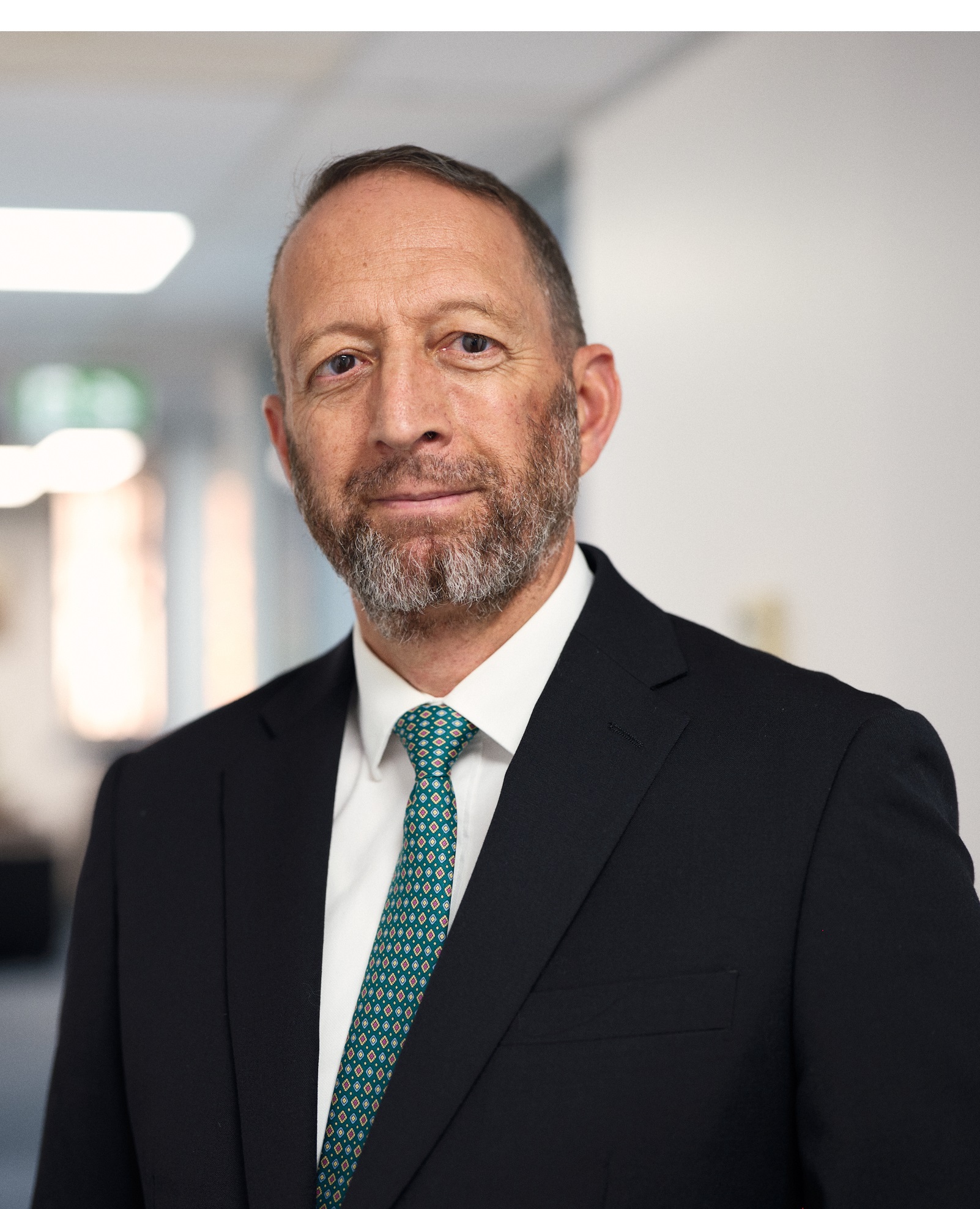 As the Principal of Malek Fahd Islamic School, I have had the privilege of experiencing firsthand the transformative impact of our partnership with the Centre for Islamic Thought & Education (CITE) at the University of South Australia. Over the past three years, this collaboration through our school’s Niyyah Project has significantly reshaped our educational landscape and reaffirmed our commitment to distinction in Islamic Pedagogy.
As the Principal of Malek Fahd Islamic School, I have had the privilege of experiencing firsthand the transformative impact of our partnership with the Centre for Islamic Thought & Education (CITE) at the University of South Australia. Over the past three years, this collaboration through our school’s Niyyah Project has significantly reshaped our educational landscape and reaffirmed our commitment to distinction in Islamic Pedagogy.
From the outset, CITE's approach was marked by a deep understanding of our educational philosophy and a commitment to enhancing it through innovative strategies. The Year 3 School Review conducted by CITE in October 2023 stands as a testament to the profound changes brought about by the Niyyah Project. Through qualitative and quantitative research methods, including focus groups and classroom observations, we observed a remarkable shift in our educators' engagement and pedagogical practices. Dr Zachariah Matthews, Principal Malek Fahd Islamic School
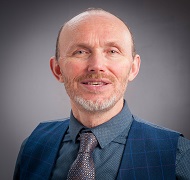 The Centre of Islamic Thought and Education has in a few years received well-deserved national and international recognition for its work in the renewal of Islamic pedagogy in school settings. It has become a beacon for the Islamic schooling sector who wish to hone their understanding of how تَرْبِيَة (tarbiya) can be practiced in multi-cultural societies. The Centre’s collaborative approach to research, teaching and training of the next generation of Islamic educational scholars sets an example for all to follow. The Centre in knowing, showing and going the way engages with and inspires all age groups, cultures and those who come from both Islamic and non-Islamic backgrounds. Professor Stephen Dobson, Dean of the School of Education adn the Arts, CQ University Australia
The Centre of Islamic Thought and Education has in a few years received well-deserved national and international recognition for its work in the renewal of Islamic pedagogy in school settings. It has become a beacon for the Islamic schooling sector who wish to hone their understanding of how تَرْبِيَة (tarbiya) can be practiced in multi-cultural societies. The Centre’s collaborative approach to research, teaching and training of the next generation of Islamic educational scholars sets an example for all to follow. The Centre in knowing, showing and going the way engages with and inspires all age groups, cultures and those who come from both Islamic and non-Islamic backgrounds. Professor Stephen Dobson, Dean of the School of Education adn the Arts, CQ University Australia
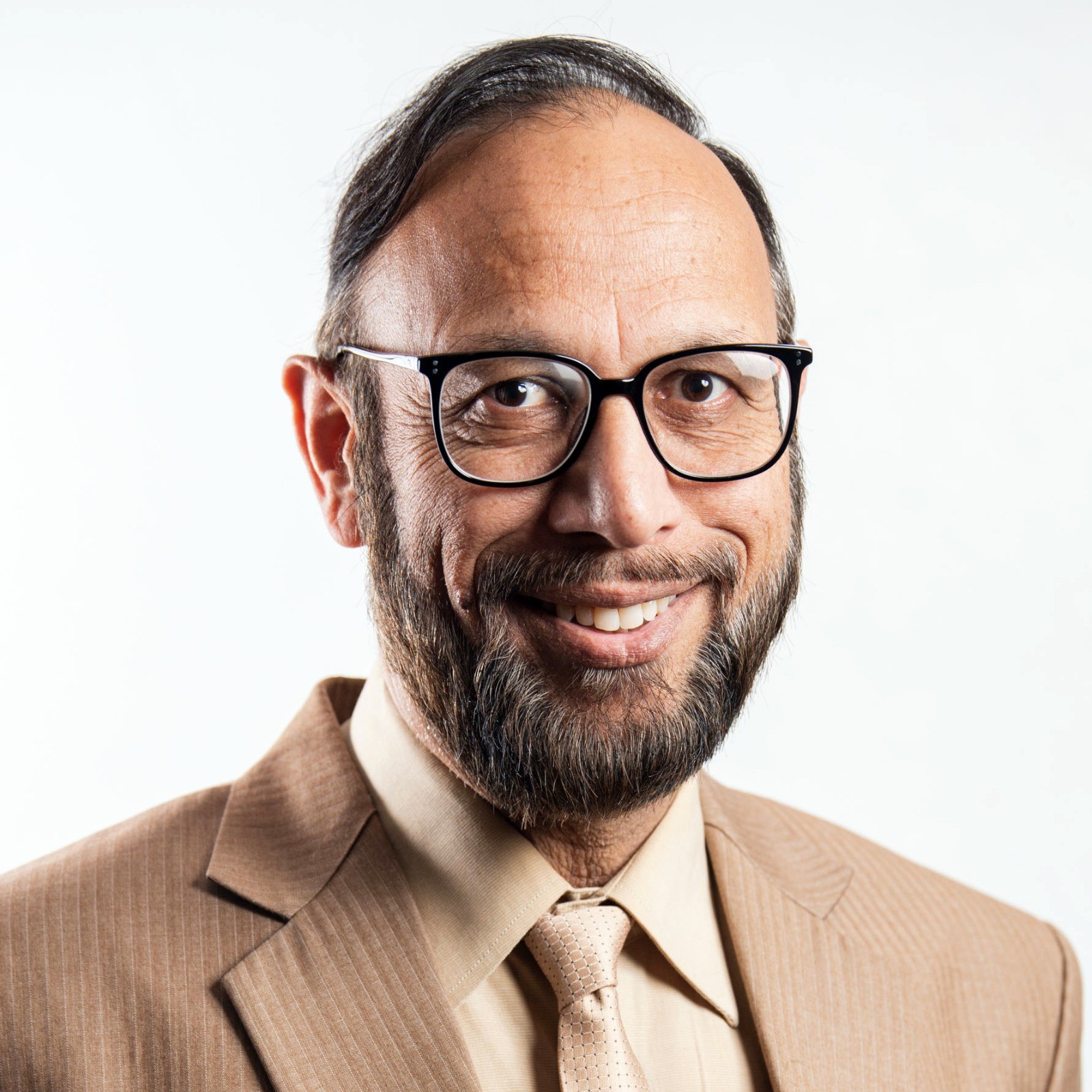 As President of the Islamic Schools Association of Australia (ISAA), I express our deep gratitude for our partnership with the Centre of Islamic Thought and Education (CITE), led by Professor Abdalla. This collaboration significantly enhances the quality of Islamic education in our schools through CITE's resources, research, and professional development opportunities. Their commitment to integrating Islamic principles with contemporary educational practices is transformative. The annual CITE conference inspires educators to guide future Muslim leaders, while their inclusive approach and expertise in combining traditional and modern pedagogical techniques set a high standard for educational excellence. We look forward to continuing this successful collaboration and achieving greater milestones in Islamic education. Thank you, CITE, for being a cornerstone of our educational journey. Mr Abdullah Khan OAM FACEL, Executive Principal & CEO, Australian Islamic College
As President of the Islamic Schools Association of Australia (ISAA), I express our deep gratitude for our partnership with the Centre of Islamic Thought and Education (CITE), led by Professor Abdalla. This collaboration significantly enhances the quality of Islamic education in our schools through CITE's resources, research, and professional development opportunities. Their commitment to integrating Islamic principles with contemporary educational practices is transformative. The annual CITE conference inspires educators to guide future Muslim leaders, while their inclusive approach and expertise in combining traditional and modern pedagogical techniques set a high standard for educational excellence. We look forward to continuing this successful collaboration and achieving greater milestones in Islamic education. Thank you, CITE, for being a cornerstone of our educational journey. Mr Abdullah Khan OAM FACEL, Executive Principal & CEO, Australian Islamic College
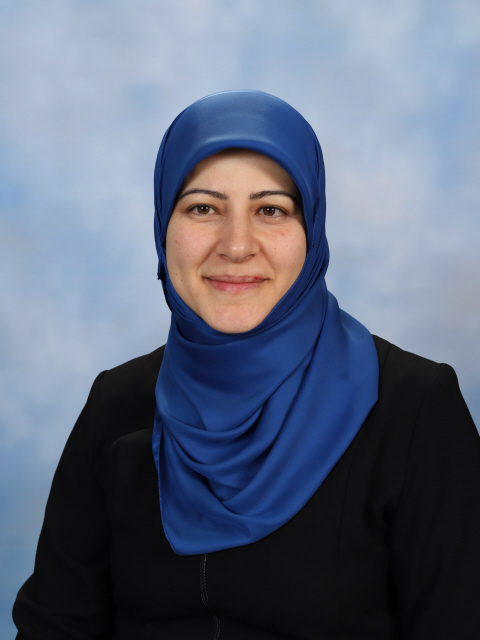 Joining Playford College at the beginning of 2018 marked a significant step into uncharted territory. Initially, the recent establishment, modest facilities, and nascent community did not seem promising for career advancement. Traditional secular Islamic schools, resembling public institutions with additional Islamic studies, Quran, and Arabic, prompted me to think beyond conventional paradigms. This realisation highlighted the need to address a subtle disregard for Islamic schooling. Engaging in discussions with Associate Professor Nadeem Memon, attending lectures by Professor Mohamad Abdalla, and participating in CITE conferences, particularly the inaugural Islamic Pedagogy course with brother Dylan Chown, introduced me to new concepts and perspectives. This experience profoundly influenced my language and approach, incorporating terms like "journey to Allah," "holistic approach," and "God consciousness." My heightened awareness extended to interpersonal dynamics, staff-student-parent interactions, and additional support avenues. My involvement with the Centre for Islamic Thought and Education (CITE) unexpectedly transformed my approach, reinforcing my commitment to nurturing an Islamic identity and proactively reviewing frameworks and policies at Playford College. As Deputy Principal of an F-12 institution with over 600 students, I support the community and staff, a role enriched by completing the Graduate Certificate in Education (Islamic Education). I am passionate about extending this opportunity to all leaders and staff at Playford College, fostering personal and professional growth, and developing tailored resources through assessment tasks. This journey has been blessed with profound insights and meaningful progress. Racha Hammoud Makki, Deputy Principal, Playford College
Joining Playford College at the beginning of 2018 marked a significant step into uncharted territory. Initially, the recent establishment, modest facilities, and nascent community did not seem promising for career advancement. Traditional secular Islamic schools, resembling public institutions with additional Islamic studies, Quran, and Arabic, prompted me to think beyond conventional paradigms. This realisation highlighted the need to address a subtle disregard for Islamic schooling. Engaging in discussions with Associate Professor Nadeem Memon, attending lectures by Professor Mohamad Abdalla, and participating in CITE conferences, particularly the inaugural Islamic Pedagogy course with brother Dylan Chown, introduced me to new concepts and perspectives. This experience profoundly influenced my language and approach, incorporating terms like "journey to Allah," "holistic approach," and "God consciousness." My heightened awareness extended to interpersonal dynamics, staff-student-parent interactions, and additional support avenues. My involvement with the Centre for Islamic Thought and Education (CITE) unexpectedly transformed my approach, reinforcing my commitment to nurturing an Islamic identity and proactively reviewing frameworks and policies at Playford College. As Deputy Principal of an F-12 institution with over 600 students, I support the community and staff, a role enriched by completing the Graduate Certificate in Education (Islamic Education). I am passionate about extending this opportunity to all leaders and staff at Playford College, fostering personal and professional growth, and developing tailored resources through assessment tasks. This journey has been blessed with profound insights and meaningful progress. Racha Hammoud Makki, Deputy Principal, Playford College
The Islamic Society of South Australia has had the privilege of engaging with the Centre for Islamic Thought and Education (CITE) on several projects, notably facilitating a groundbreaking conference aimed at gathering community input.
This conference was a milestone event, allowing our community to express their needs directly to ISSA. Personally, witnessing CITE's impactful community engagement has been enlightening. Their approach not only encouraged participation but also provided invaluable recommendations that have reshaped ISSA's service delivery based on genuine community insights. CITE's dedication to fostering dialogue and collaboration among community leaders, imams, and youth has been exemplary. Our ongoing partnership with CITE has been instrumental in refining our strategies and ensuring they align closely with the community's aspirations. Thank you for your continued support and partnership in these endeavours. Ahmed Zreika, President, Isalmic Society of South Australia
Teaching Testimonials
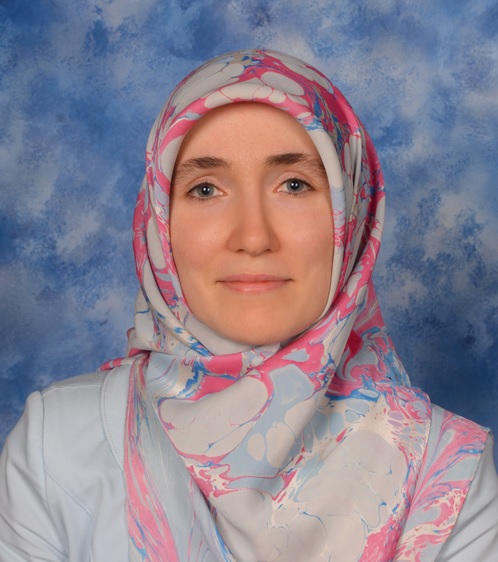
This program has given my colleagues and myself the opportunity to dream... of distinctly Islamic approach to education by nurturing our students more holistically... of an Islamic worldview and tradition as the foundation for our school philosophy, cur riculum and policy... and of Prophetic pedagogal and behavioural approaches to establish strong bonds as the basis of our relationships. Zeynep Sertel, Secondary Principal, Dallas Secondary Campus, Ilim College
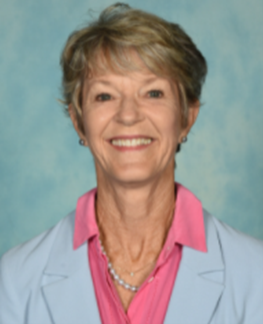 The program has provided me an opportunity to reflect and deeply understand my positionality on making educational decisions. No other course has created such an awakening for me and I believe this is vital for any educator teaching or leading in any school. The lecturers skilfully select readings to inform, challenge and motivate renewal of practices. I believe it is the complete package because the research, reflection, discussions, planning and implementation come togetehr in practice - the defining creiteria for the ultimate learning - the 'ilm and 'amal'. Susan Scott, Chief Learning Officer, Islamic College of Brisbane
The program has provided me an opportunity to reflect and deeply understand my positionality on making educational decisions. No other course has created such an awakening for me and I believe this is vital for any educator teaching or leading in any school. The lecturers skilfully select readings to inform, challenge and motivate renewal of practices. I believe it is the complete package because the research, reflection, discussions, planning and implementation come togetehr in practice - the defining creiteria for the ultimate learning - the 'ilm and 'amal'. Susan Scott, Chief Learning Officer, Islamic College of Brisbane
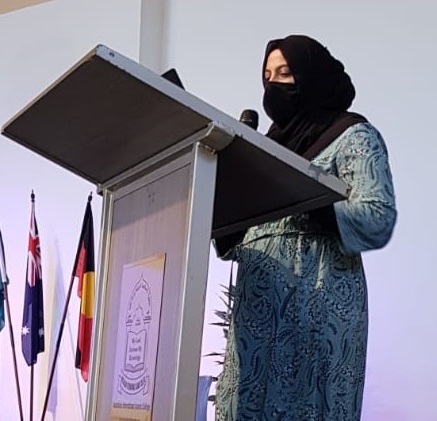 For the longest time I have been saying that the current education system has not been preparing our Muslim students for the world out there, but it's been a struggle initiating change and knowing where to start. This program has provided a platform as well as given me direction on how to initiative a process of renewal with a focus on intentional teaching reflective practices. The program has given me the confidence to consider alternative views on education, and particularly in implementing Islamic Pedagogy in our Islamic Schools. Mariam Ghood, Australian International Islamic College
For the longest time I have been saying that the current education system has not been preparing our Muslim students for the world out there, but it's been a struggle initiating change and knowing where to start. This program has provided a platform as well as given me direction on how to initiative a process of renewal with a focus on intentional teaching reflective practices. The program has given me the confidence to consider alternative views on education, and particularly in implementing Islamic Pedagogy in our Islamic Schools. Mariam Ghood, Australian International Islamic College
I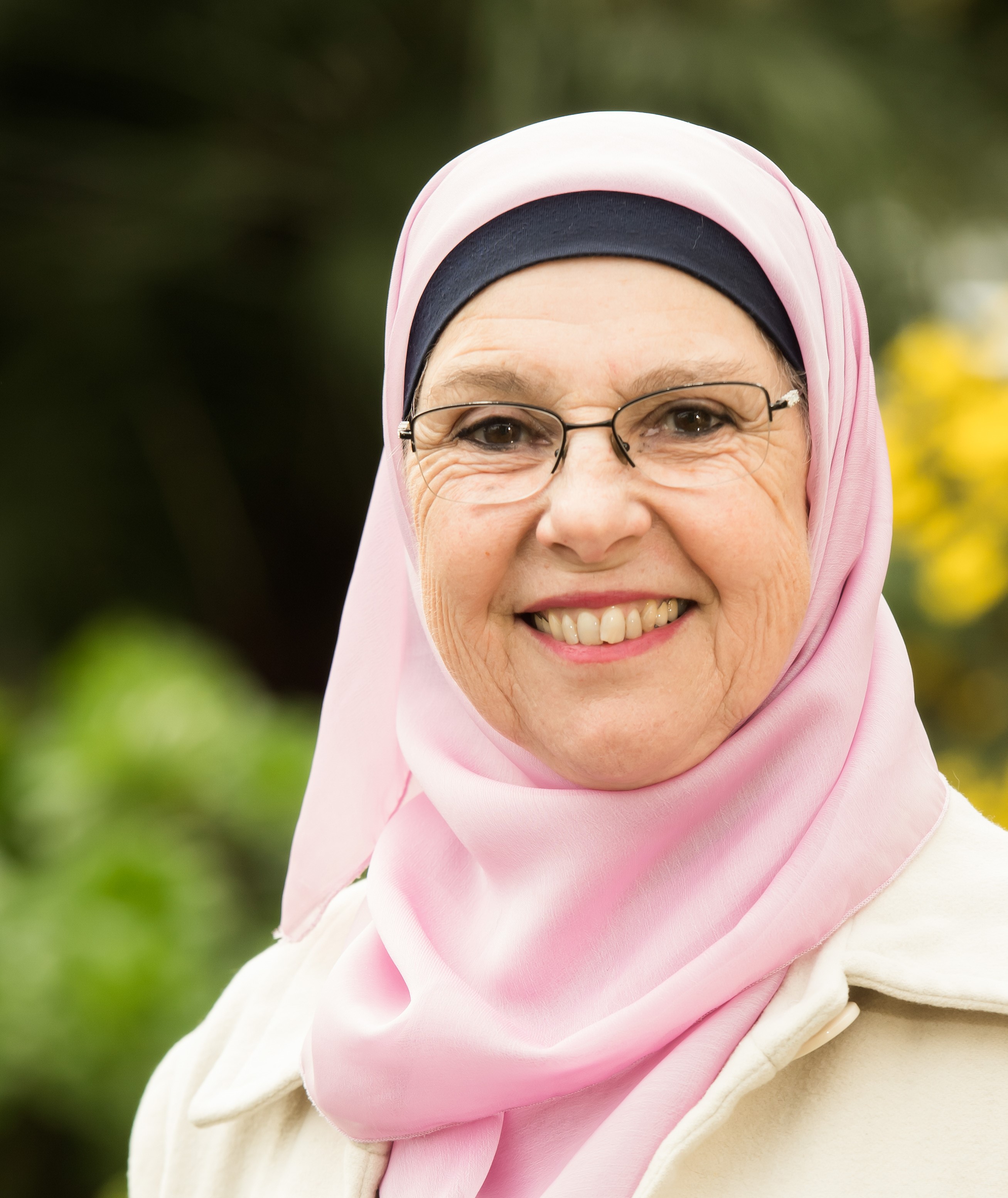 have relished the opportunity to engage deeply in study on traditional and contemporary scholarship, and the practical application of Islamic pedagogy. To envision and realise an inspirational pedagogy, embedded in Islamic concepts, able to meet the needs of our students today. Silma Ihram, Islamic Educational Consultant
have relished the opportunity to engage deeply in study on traditional and contemporary scholarship, and the practical application of Islamic pedagogy. To envision and realise an inspirational pedagogy, embedded in Islamic concepts, able to meet the needs of our students today. Silma Ihram, Islamic Educational Consultant
Research Testimonials
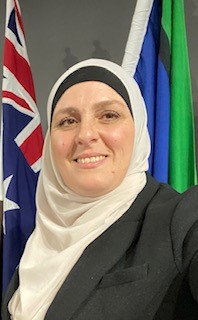 As a traveller guided by divine knowledge and wisdom, I am drawn to the realm of reflexivity and have a keen interest in the world of empirical things. Therefore, I am seeking institutions that promote rigorous scholarship and encourage open dialogue, fostering a community where diverse perspectives are valued and respected. The Centre for Islamic Thought and Education (CITE) stands out as a beacon of enlightenment, dedicated to deepening an understanding of Islamic principles and their contemporary relevance. My association with CITE and its commitment to research and cultivating new cultures of inquiry empower me to engage thoughtfully with empirical matters. This institution, rooted in Islamic tradition, has supported me in my pursuit of attaining knowledge and wisdom to navigate these complexities. Dr. Ayda Succarie, Lecturer, Academic Program Advisor, International Academic Lead, Western Sydney University
As a traveller guided by divine knowledge and wisdom, I am drawn to the realm of reflexivity and have a keen interest in the world of empirical things. Therefore, I am seeking institutions that promote rigorous scholarship and encourage open dialogue, fostering a community where diverse perspectives are valued and respected. The Centre for Islamic Thought and Education (CITE) stands out as a beacon of enlightenment, dedicated to deepening an understanding of Islamic principles and their contemporary relevance. My association with CITE and its commitment to research and cultivating new cultures of inquiry empower me to engage thoughtfully with empirical matters. This institution, rooted in Islamic tradition, has supported me in my pursuit of attaining knowledge and wisdom to navigate these complexities. Dr. Ayda Succarie, Lecturer, Academic Program Advisor, International Academic Lead, Western Sydney University
CITE plays a transformative role in the field of Islamic education by establishing teaching from an Islamic worldview as a legitimate and holistic approach to education in Western educational spaces. It achieves this by publishing in high-ranking journals and offering university-accredited programs in Islamic pedagogy. CITE offers graduate studies in Islamic education globally and disseminates its latest research through both short and long videos, shifting the discourse on Islamic education worldwide to ensure its alignment with and advancement within original sources of Islam, centered around the Quran and Sunnah. Dr Asma Ahmed, Niagara University Faculty of Education (Canada)
I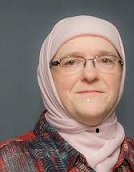 slamic schools across the world need more focused programs like CITE where preparing educators for the field of Islamic education is highly valued, and where the Islamic worldview is the norm. Children learn best when their teachers have in-depth knowledge, are able to relate to various aspects of faith, and are engaged in practicing their religion while living in a contemporary world. The need for teachers to have formal Islamic studies training in English as well as Arabic is high. Islamic schools in many countries have waiting lists because families are living the values, practicing Islam, and want their children to learn Arabic, Quran and Islamic studies at the core of their education with strong academic skills fully integrated into their worldview. Dr Seema Imam
slamic schools across the world need more focused programs like CITE where preparing educators for the field of Islamic education is highly valued, and where the Islamic worldview is the norm. Children learn best when their teachers have in-depth knowledge, are able to relate to various aspects of faith, and are engaged in practicing their religion while living in a contemporary world. The need for teachers to have formal Islamic studies training in English as well as Arabic is high. Islamic schools in many countries have waiting lists because families are living the values, practicing Islam, and want their children to learn Arabic, Quran and Islamic studies at the core of their education with strong academic skills fully integrated into their worldview. Dr Seema Imam
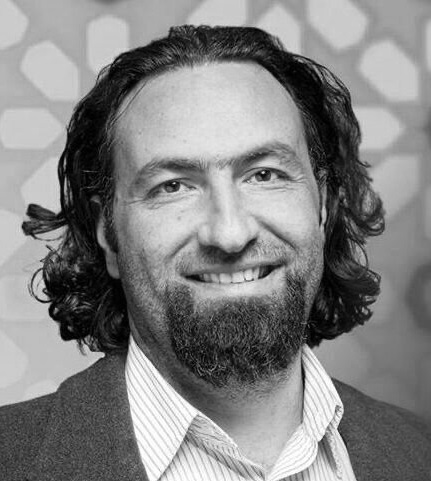 CITE is a beacon of hope in the field of Islamic Education, a field in desperate need of high-quality research and training programs. It is a global centre with local roots, outstanding academics, and rich courses transforming the landscape and ushering in a new era in Islamic Education. Dr Samir Mahmoud, Academic Director of Usul Academy, Lecturer at Cambridge Muslim College
CITE is a beacon of hope in the field of Islamic Education, a field in desperate need of high-quality research and training programs. It is a global centre with local roots, outstanding academics, and rich courses transforming the landscape and ushering in a new era in Islamic Education. Dr Samir Mahmoud, Academic Director of Usul Academy, Lecturer at Cambridge Muslim College
In today's global educational landscape, there is an urgent need for programmes that honour the depth of traditional Islamic educational scholarship while effectively and authentically engaging with contemporary Western contexts. The Centre for Islamic Thought and Education (CITE) at UniSA, under insightful, knowledgeable, and authentically dedicated leadership, embodies this vision with its innovative and much-needed educational provision. These programmes masterfully blend the profound principles of Islamic educational philosophy and practice with cutting-edge, research-informed educational strategies.
What further distinguishes the CITE’s provision is its dedication to nurturing educators who are deeply knowledgeable about Islamic education, yet also critical, reflective, and adaptive. This unique approach ensures that they can wisely address the complexities of today's diverse educational environments and communities, all while maintaining a strong connection to their Islamic educational heritage. Dr Fella Lahmar, Senior Fellow of the Higher Education Academy, Boston Islamic Seminary




